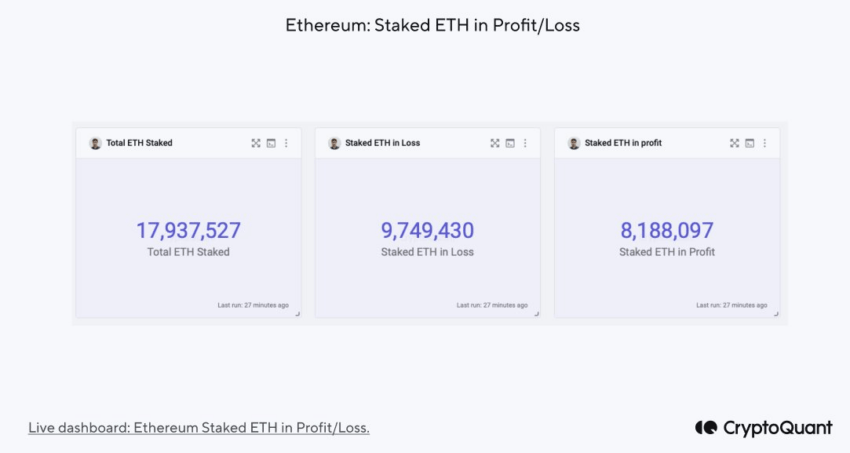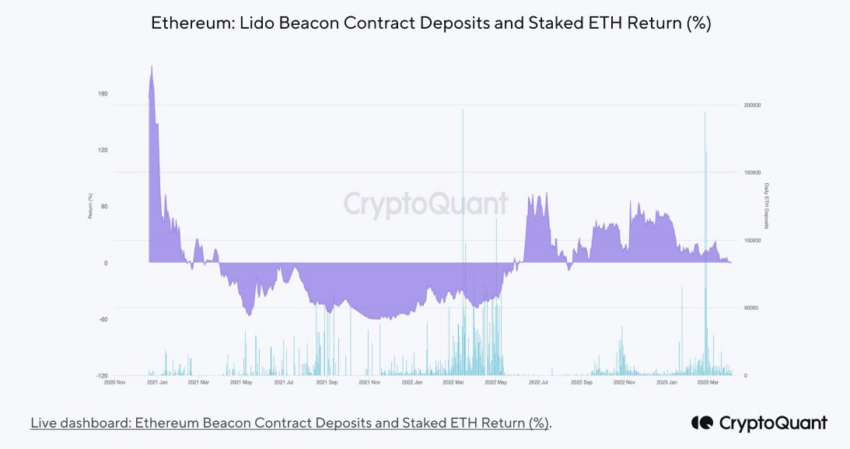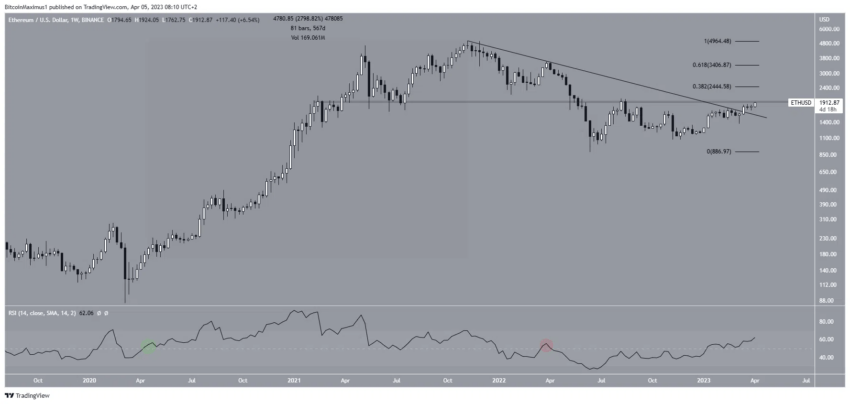No Sell-Off After Ethereum’s Shapella Upgrade, Claims On-Chain Expert

Profit and loss analysis suggests lower-than-expected selling pressure following the Ethereum Shapella upgrade
The highly anticipated Shapella upgrade of Ethereum, a hard fork scheduled for April 12, 2023, brings with it significant implications for the crypto market. Combining elements from the proposed Ethereum Improvement Proposals “Shanghai” and “Capella,” the Shapella upgrade will allow stakers and validators to withdraw assets from the Beacon Chain.
Ethereum Price Prediction After Shanghai Upgrade: Subdued Selling Pressure
With staked Ether accounting for roughly one-seventh of the total supply of about 16 million coins, this development carries immense weight. The current value of all staked Ether is over $26 billion.
Despite fears of increased selling pressure following the activation of withdrawals on April 12, a profit and loss analysis by CryptoQuant offers a different perspective.
At present, over half of the staked ETH (9.7 million out of 17.9 million) is operating at a loss.

Ethereum Staked. Source: CryptoQuant
Additionally, a significant portion of deposits made by the Lido pool is currently underwater.
Given the substantial amount of staked ETH in a loss, experts anticipate the selling pressure to be lower than expected. This projection is based on the assumption that holders may be hesitant to sell at a loss.

Ethereum Deposit Contract. Source: CryptoQuant
From a technical standpoint, the ETH price has yet to surpass the $1,940 horizontal resistance area. Should the upward trend continue and the price close above this threshold, the cryptocurrency could potentially reach the next resistance levels at $2,440 and $3,400.
These values correspond to the 0.382 and 0.5 Fib retracement resistance levels. As the former aligns with the previous channel’s resistance line, it is more likely to serve as a local top.

Ethereum Price Chart. Source: TradingView
The Shapella upgrade will undoubtedly impact the Ethereum ecosystem. Still, the selling pressure after the hard fork may not be as significant as initially feared. With a large portion of staked Ether operating at a loss, holders may be more inclined to wait for a price rebound before liquidating their assets.






 Bitcoin
Bitcoin  Ethereum
Ethereum  Tether
Tether  USDC
USDC  TRON
TRON  Dogecoin
Dogecoin  Cardano
Cardano  Bitcoin Cash
Bitcoin Cash  Chainlink
Chainlink  LEO Token
LEO Token  Monero
Monero  Zcash
Zcash  Stellar
Stellar  Litecoin
Litecoin  Hedera
Hedera  Dai
Dai  Cronos
Cronos  OKB
OKB  Tether Gold
Tether Gold  Ethereum Classic
Ethereum Classic  KuCoin
KuCoin  Gate
Gate  Algorand
Algorand  Cosmos Hub
Cosmos Hub  VeChain
VeChain  Stacks
Stacks  Tezos
Tezos  Dash
Dash  TrueUSD
TrueUSD  IOTA
IOTA  Basic Attention
Basic Attention  Theta Network
Theta Network  Decred
Decred  NEO
NEO  Synthetix
Synthetix  Qtum
Qtum  0x Protocol
0x Protocol  Ravencoin
Ravencoin  DigiByte
DigiByte  Zilliqa
Zilliqa  Holo
Holo  Nano
Nano  Siacoin
Siacoin  Numeraire
Numeraire  Waves
Waves  Status
Status  Enjin Coin
Enjin Coin  Ontology
Ontology  BUSD
BUSD  Hive
Hive  Lisk
Lisk  Pax Dollar
Pax Dollar  Steem
Steem  Huobi
Huobi  NEM
NEM  OMG Network
OMG Network  Bitcoin Gold
Bitcoin Gold  Augur
Augur